The personal consumption expenditure (PCE) index, a primary measure of the cost of living in the United States, rose 3.6 percent in April, the highest rise in 13 years, according to a report released by the Commerce Department last week.Return in about 3 months (around 9/2/2021)
The increase in the index, which was larger than economists had expected, underscores a global problem of rising costs, especially for consumer staple goods and basic components of such products. The impact is disproportionately borne by working people.
The cost of living in the United States, as in most countries around the world, is on a steep upward curve. To give some examples:
Meat prices rose by 1.5 percent just in April and have risen 4 percent this year, driven by price increases for animal feed grains like soybeans and corn.
Lumber costs have risen by 300-400 percent over the last year, driven by disruptions and mismatches in the supply chain due to COVID-19.
Used car prices jumped 10 percent in April and are up by 21 percent since a year ago. The average cost of a used car broke $25,000 for the first time in the US.
In the last year, fuel prices have increased by over 50 percent, going from a national average of about $2.00 to $3.00.
Fruits and vegetables were up 3.3 percent in April compared to the same month in 2020. Food prices as a whole were up 2.4 percent.
Electricity prices were 3.6 percent higher compared to the same period last year, jumping 1.2 percent in April from the previous month.
Less-densely populated areas in the interior of the United States have seen surging home prices, as residents from larger, often coastal, cities move. Boise, Idaho, for example, has seen a 32 percent increase in home prices over the last year.
Another major US index, the consumer price index (CPI), increased even more than the PCE, rising by 4.2 percent in April. The CPI puts more weight on costs workers bear out of pocket, such as housing, utilities, consumer goods and insurance payments. The PCE is a more abstract measure of inflation in the economy, including the cost of services not necessarily directly impacting most consumers.
And, since I was too young in real time, can I finally get a pair of earth shoes this go round?
Here's C.I.'s "Iraq snapshot:"
Wednesday, June 2, 2021. The Turkish government continues to terrorize Iraq and now it's clearing forests in northern Iraq. Where's the outrage?
To say the government of Turkey is a bully is to put a smiley face on it and understate reality. It is currently violating international law with its actions in Iraq and should be on trial for War Crimes. With little attention paid to Turkey's actions or to international law, the world has stood by as Turkey has declared it has the right to attack Kurds.
Sorry, poorly worded. The world has stood by as Turkey has declared it has the right to attack Kurds in Iraq. The world has always stood still and allowed Turkey to terrorize the Kurds within Turkey. That allowed the government to think that they could expand their onslaught outside their borders and into the neighboring Iraq. Turkey sending forces into Iraq isn't just a violation of another country's sovereignty, it's an act of war. Let's all stop pretending otherwise.
In the latest development, REUTERS reports:
President Tayyip Erdogan has warned Iraq that Turkey will “clean up” a refugee camp which it says provides a safe haven for Kurdish militants, threatening to take its long military campaign deeper inside Iraqi territory.
[. . .]
Erdogan said Makhmour, a camp 180 km south of the Turkish border which has hosted thousands of Turkish refugees for more than two decades, was an “incubator” for militants and must be tackled.
“If the United Nations does not clean it up, we will do it as a UN member,” Erdogan said, adding that Ankara believed Makhmour posed as great a threat as the PKK’s stronghold in the Qandil mountains further north.
And that's the thing about bullies: If they aren't rebuked, they grow emboldened. Erdogan is a bully where ever he goes. In the US? He had his bodyguards beat up Americans -- in public -- in front of cameras -- and there were no consequences. Barack Obama just waved and said, "Thanks for visiting! See you soon!" He's a despot. People go on and on about Putin and you have to wonder -- are you really that stupid? If the media doesn't train you, are you unable to think? How many years has Erdogan reuled over Turkey? Do you even know? Do you even know the genocide against the Kurds that's been ongoing for years? The PKK is a response. It is not an initiating action. The PKK rises up because of the way the Kurds are persecuted by the Turkish government. Instead of the world joining in rebuking Turkey for the way they have treated Kurds within their own borders, the world has largely stayed silent and Turkey's been able to expand their ethnic cleansing beyond their southern border and into Iraq.
Where does it stop?
That question should have been asked long ago.
HURRIYET DAILY NEWS, a Turkish outlet that serves as a mouthpiece for the Turkish government, states:
Turkish forces have neutralized 1,162 terrorists in operations within the country and outside its borders this year, the National Defense Ministry said on May 30.
The terrorists were neutralized in 181 large- and medium-scale operations, ministry spokeswoman Maj. Pınar Kara told a news briefing.
The figure includes 142 terrorists who were neutralized in Pence-Simsek and Pence-Yildirim operations in northern Iraq.
142 in Iraq? Terrorists? And how many civilians did they kill? None.
Not one.
That's according to them.
That's not reality but that is their claim.
And too many outlets endorse genocide and let them get away with that lie.
Reality/
Seth J. Frantzman (JERUSALEM POST) notes:
Turkey continued its campaign of bombarding villages in northern Iraq's autonomous Kurdistan region this week, reportedly damaging homes and a church of local Christian minorities.
Ankara claims it is fighting "terror" although there have been no major terror attacks in Turkey for many years. The real terror, according to the locals, comes from Turkey's bombardment using drones, aircraft and even artillery.
The Assyrian Policy Institute noted that "yesterday, Mar Yousip Assyrian Church of the East in the Assyrian village of Musaka in Barwar, northern Iraq was damaged during a Turkish aerial campaign targeting suspected PKK positions in the area."
According to the local reports from Rudaw and other sources, the bombing damaged a Christian village and a church. One villager from Miska said that bombs fell near buildings.
It appears Miska and Musaka are related spellings of the name for the same place. In northern Iraq, many towns have multiple names, sometimes including a Turkish, Arabic, Assyrian and Kurdish name and spelling. For instance, the large Christian town of Qaraqosh is also called Hamdaniyeh and Bakhdida. Erbil is called Hawler in Kurdish.
"People were terrified," a local told Rudaw about Turkey's bombing of the area. Many families, who are members of ancient Christian minorities, have been forced to flee local villages. According to reports, the villages of Kesta and Chalke have been depopulated and only a few families remain in Miska.
This looks like ethnic cleansing, similar to how Turkey forced 170,000 Kurds to flee Afrin in Syria after invading the area in 2018 and sending Turkish-backed jihadist extremists to occupy the area and attack minority Kurds and Yazidis.
Wherever Turkey occupies Syria, it has ethnically cleansed minorities. Inside Turkey, tens of thousands of Kurds have been massacred during Turkey's various wars against what it says is Kurdistan Workers Party terrorism.
The same Turkish state that bombs and strafes villages in Iraq and Syria is also the one that slams Israel for airstrikes in Gaza. Turkey may be using attacks on Israel to distract from its own campaigns attacking civilian areas under the guise of "fighting terrorism."
Monday, Steve Sweeney (UK MORNING STAR) noted:
TURKEY was accused of using chemical weapons against guerilla fighters yet again in its war against the Kurdish people in northern Iraq.
According to Kurdistan Workers Party (PKK) officials, “chemical warfare agents” were deployed against tunnels used by armed resistance fighters in the semi-autonomous Kurdistan region’s mountainous Duhok province, which borders Turkey.
It claimed that such “dirty tactics” have been used on at least 12 occasions, although the Morning Star has not been able to independently verify the allegations. The latest attack was said to have taken place on Saturday.
Turkey, which has Nato’s second largest army, is bogged down in what could potentially be a lengthy and costly battle in the province after it launched Operation Claw-Lightning on April 23.
Turkey’s war is opposed by all political forces in Kurdistan along with the Iraqi Communist Party, which deems the invasion illegal and an open attack on the country’s sovereignty.
On Sunday, Kurdistan Democratic Party (KDP) executive committee member Edhem Barzani wrote an open letter to the Kurdistan regional presidency and the United Nations in protest against Ankara’s military operations.
“Kurdistan, this beautiful land, which is the common heritage of humanity and the nation of the Kurds, is systematically burned and plundered under the pretext of defence,” he wrote.
He warned that Turkey does not leave places where it gains a foothold, such as Cyprus.
Sunday, AHVAL reported:
A total of 47 villages have been evacuated in Iraq’s semi-autonomous Kurdistan region as a result of Turkish airstrikes in the last 37 days, Mezopotamya Agency reported on Saturday.
Village guards with the Turkish army and groups in the Free Syrian Army (FSA) allied with Ankara have also started logging in the evacuated villages, selling the timber in Turkey via Turkish companies, Mezopotamya said, citing a ruling Kurdistan Democratic Party (PDK) lawmaker.
PDK lawmaker Rêving Hirurî spoke to Iraqi Kurdish press, confirming that party official Ali Awnî had greenlighted the logging and removal of the timber from the evacuated villages, Mezopotamya said. In the evacuated villages, Turkish troops have also started to set up checkpoints and to station armoured vehicles.
MEHR NEWS AGENCY adds, "Some 1.85 square kilometres of fruit trees have burned down in Metina, and cultivated lands areas have caught fire while herds of livestock belonging to the Iraqi Kurdish villagers have perished." Karwan Faidhi Dri (RUDAW) reports:
Areas of the Kurdistan Region bordering Turkey, recently deforested by
the Turkish army, used to be so dense with trees that the sky was
practically blocked out, witnesses told Rudaw English.
An eyewitness, whose photographs of deforested areas in Duhok province
went viral recently, spoke on the condition of anonymity to Rudaw
English about what he saw during his recent trip to the border region.
“Ten years ago, we used to smuggle animals from Turkey to the Kurdistan
Region through these areas. The forests were so dense that we could
barely see the sky. We were also able to pass the border without being
noticed by Turkish soldiers - thanks to the trees,” the witness
recounted.
He was referring to a series of mountains near Nizure, Kesta and Hirore
villages in Duhok province. The vicinity of these areas has been invaded
by the Turkish army since it launched two military operations against
the Kurdistan Workers’ Party (PKK) on April 23.
Most of the residents of these villages have fled their homes due to
intense clashes between the Turkish army and the PKK in the vicinity of,
and sometimes inside, the villages.
[. . .]
A satellite image he shared with a tweet shows that the Kurdistan Region’s mountainous areas were mostly green on May 14, 2020 but almost all the trees seem to have been cut down by May 14 this year.
Deforestation, Turkey's contribution to global warming. "Ecocide" is the term being used, RUDAW's Dilan Sirwan explains and also notes, "Local residents, speaking on condition of anonymity, have told Rudaw that some of the trees were taken across the border to be sold."
Here are a few of the Tweets with the #Ecocide:


 #SaveTheTrees
#SaveTheForest
#StopTurkeyEcocideKurdistan
#SaveTheTrees
#SaveTheForest
#StopTurkeyEcocideKurdistanZelan Kader offers this thread:
Kurdistan Regional Government (KRG) Spokesperson Jotiar Adil said on Monday (May 31) that the KRG has officially complained to the Turkish government about illegal logging in the border areas of the Kurdistan Region, which he called “unacceptable.”
Recent reports from Duhok governorate’s Zakho district showed Turkish trucks bringing trees back to Turkey that had been felled in areas of the Kurdistan Region under Turkish military occupation. The images were reminiscent of the activities of Turkey and its rebel allies in northern Syria.
Adil said in a statement that the KRG has expressed its concerns and dissatisfaction about the damage done by Turkey to the nature of the Kurdistan Region.
Wladimir van Wilgenburg (KURDISTAN 24) adds:
The Kurdistan Regional Government has expressed its concern to Ankara over the apparent widespread logging and ongoing deforestation in the border areas of Duhok province blamed on Turkish companies.
The KRG “strongly rejects the Turkish Government’s deforestation of the Kurdistan Region’s precious lands, and it has officially requested Turkey to cease its harmful and destructive activities,” government spokesperson Dr. Jotiar Adil said on Monday.
In a joint statement early Tuesday, the agriculture ministries of the KRG and the Iraqi federal government called on Turkey to stop cutting down trees in Duhok province, calling it a hostile act against the environment. The ministries urged the United Nations and international organizations to act to resolve the issue.
What's today? Wednesday? We're two days away from another useless "firedrill Friday" ("Fire drill Friday"?). Those useless events that Jane Fonda's been doing. How about adding some weight to the event, Jane, and bringing up what Turkey's doing? Actually highlight something and not just try the feel good nonsense that you've been urged to do. (Jane explains in her book that 'advisors' explained to her the events couldn't actually educate because that would be too much work -- for a review of that bad book, see Ava and my "Media: The Jane Fonda Horror Show").
At GREEK CITY TIMES, Elly Abramson writes:
On 24 April, President Joe Biden formally recognized the Armenian Genocide, making this the first U.S. administration to do so.
This mass killing of civilians resulted in the deaths of up to 1.5 million Armenians between 1915 and 1923 at the hands of Ottoman authorities. Most of the victims died in forced labor battalions or on death marches to remote camps.
Beyond the mere gesture to historical injustice, Biden’s decision signalled an important shift in American policy toward Turkey’s activities in the region. By acknowledging this infamous event, Biden rejected the longest standing gag-rule in American foriegn policy, throwing off pressure from the Turkish government who has long sought to repress historical recognition of this crime.
An official statement by the Armenian National Committee of America commended “President Biden’s principled stand on the Armenian Genocide” claiming the move “powerfully overrode Ankara’s foreign veto against honest American remembrance of this crime [and] pivots America toward the justice deserved and the security required for the future of the Armenian nation.”
Indeed, this important change to Washington’s attitude toward Turkey could not have come at a more important time. While recognizing past crimes is important, current and ongoing aggression by Turkey in the region is escalating to a startling degree.
Turkey has had a longstanding conflict with the Kurdish people for decades. The Kurds, an ancient ethnic group residing in the border region between modern day Turkey, Syria, and Iraq, have been at the center of geopolitical upheaval for much of the recent period.
Over the past three years, Turkey has escalated its attacks against Kurdish groups to its south. The first major event in this trend took place in early 2018, when the Turkish army executed an incursion into the Afrin region of Syria. The following year, Turkey launched another operation in northern Syria with the intent to eradicate the presence of Kurdish militias that had allegedly created a foothold in the area.
The series of airstrikes and ground forces attacks that took place in the first weeks of October 2019, displaced thousands and resulted in the deaths of dozens of civilians.
Now, Turkey has taken its war against the Kurds to Iraq, where recent actions by its military have left devastation unseen in the country for years.
Ankara began to widen its operations in Iraq after 13 Turkish citizens being held hostage by the Kurdish militias were killed during a February raid by Turkish forces on a Kurdish base in the country.
Turkey officially launched Operation Claw Lightning into Iraq on April 23, the very anniversary of the Armenian genocide. Over the past several weeks, the Turkish air force has bombarded several villages in northern Iraq, in the region known as the autonomous Kurdish zone.
Local residents have reported that Turkey’s bombardment using drones, aircraft, and even artillery, has left dozens of civilians dead, and damaged several non-military structures.
On 23 May, the Assyrian Policy Institute (API) noted that “yesterday, Mar Yousip Assyrian Church of the East in the Assyrian village of Musaka in Barwar, northern Iraq was damaged during a Turkish aerial campaign.” According to API, the bombings were targeting suspected positions of the PKK, a Kurdish armed group.
While Turkey claims that its actions are in order to “combat terror”, there have, in fact, been no major terror attacks in Turkey for years. The claim by Turkish officials that cross border incursions are necessary to create “safe-zones”, there are to date no records of attacks aimed at Turkey emanating from Iraq or Syria.
But more than the physical destruction inflicted by its military, the biggest effect of Turkey’s activities in Iraq have been the colossal displacement of the area’s population. Turkey’s actions in the region are beginning to look a lot like the ethnic cleansing, similar to how Turkey forced 170,000 Kurds to flee Afrin in Syria after invading the area in 2018.
During that campaign, Turkey coordinated with ISIS affiliated jihadist extremists to occupy the area and attack minority Kurds and Yazidis and force them to flee. Indeed, wherever Turkey has occupied an area in the region, whether it be Syria or Iraq, it has systematically removed minority groups deemed a threat.
In Turkey’s current campaign in northern Iraq, hundreds of Kurdish villagers have been forced to flee incessant bombing. At the same time, reports are emerging that Turkey is shipping in jihadists and their families from neighbouring Syria as part of an attempt to enforce population change.
The following sites updated:
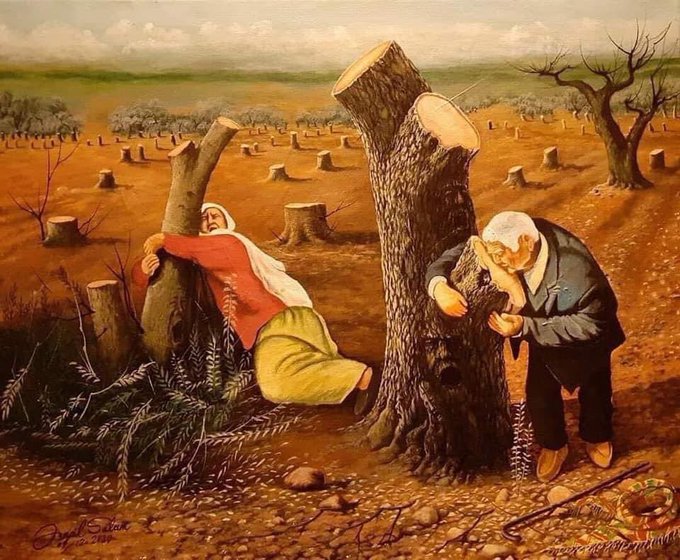
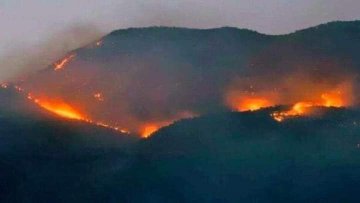

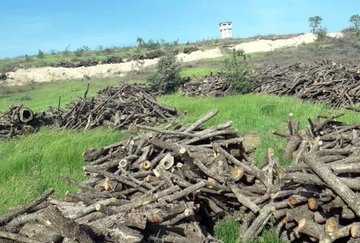
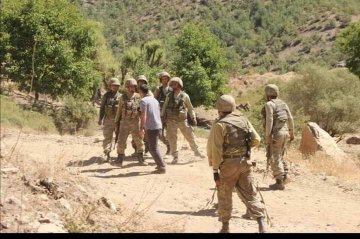
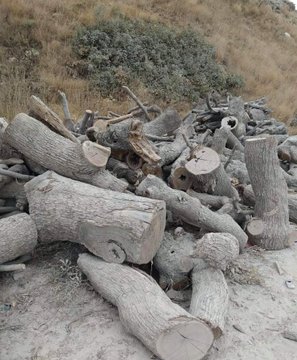
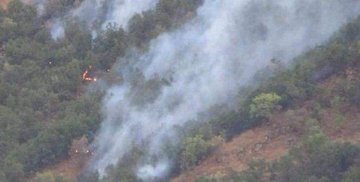
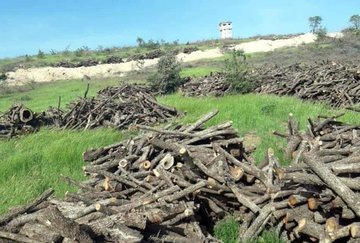
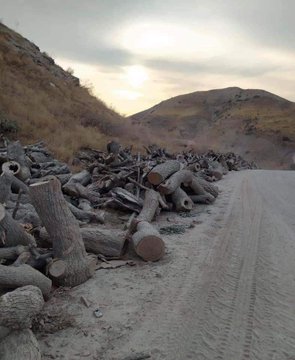
No comments:
Post a Comment